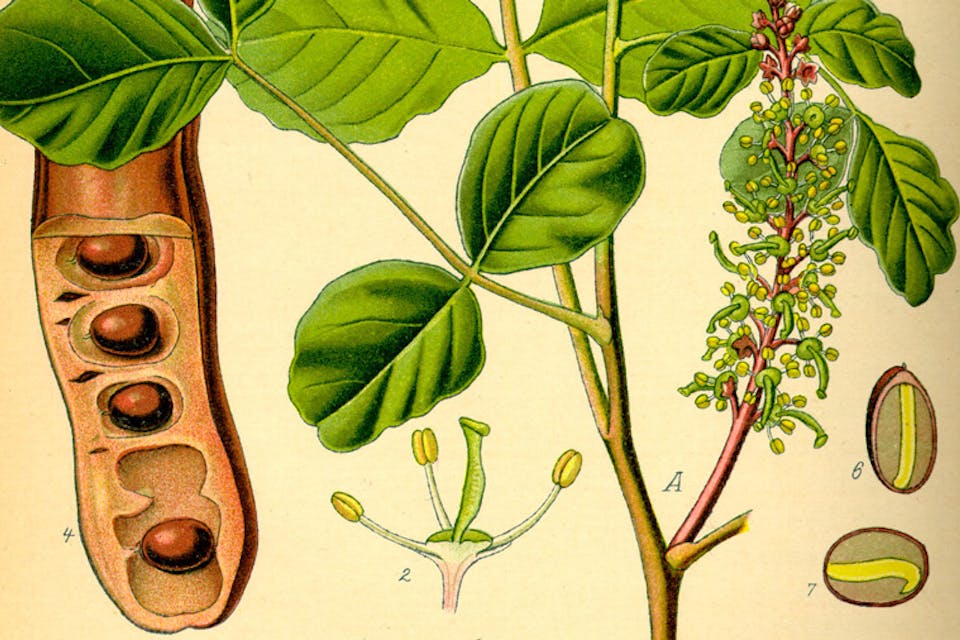
February 4, 2015
Why Jews Used to Eat Dried Carob on Tu b’Shvat
Bokser smells like Limburger cheese. It's also an embodiment of Jewish vitality and endurance.
I write in praise of the dried carob, known for centuries to Ashkenazi Jews as bokser.
Surely there are many American Jews, at least of a certain age, who still vividly remember, as children in religious school, imitating their ancestors by ingesting this fruit in honor of Tu b’Shvat, the annual Jewish festival of trees that is celebrated today. And there is ample reason why they should remember: carobs are remarkably unpleasant to eat. As my Mosaic colleague Philologos once candidly put it, carobs “are flattish, irregularly curved, serrated along the edges, four to six inches in length, hard as nails to bite into, and yield—if you haven’t meanwhile broken all your teeth—a mealy substance that has been described as smelling like Limburger cheese.”
Perhaps, however, a closer look can reveal just how and why this much-maligned fruit is, in its own way, an ultimate embodiment of Jewish vitality and endurance.